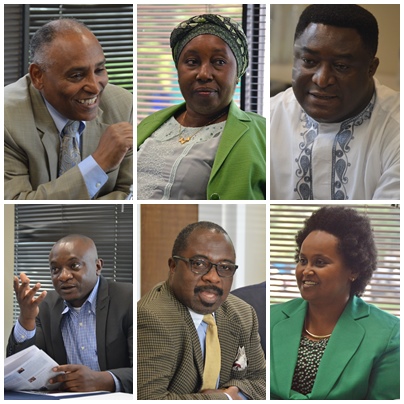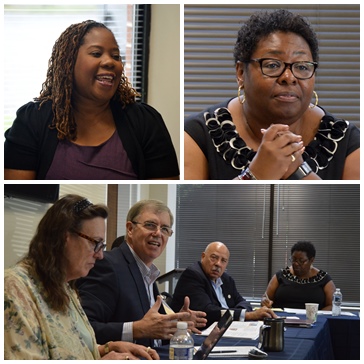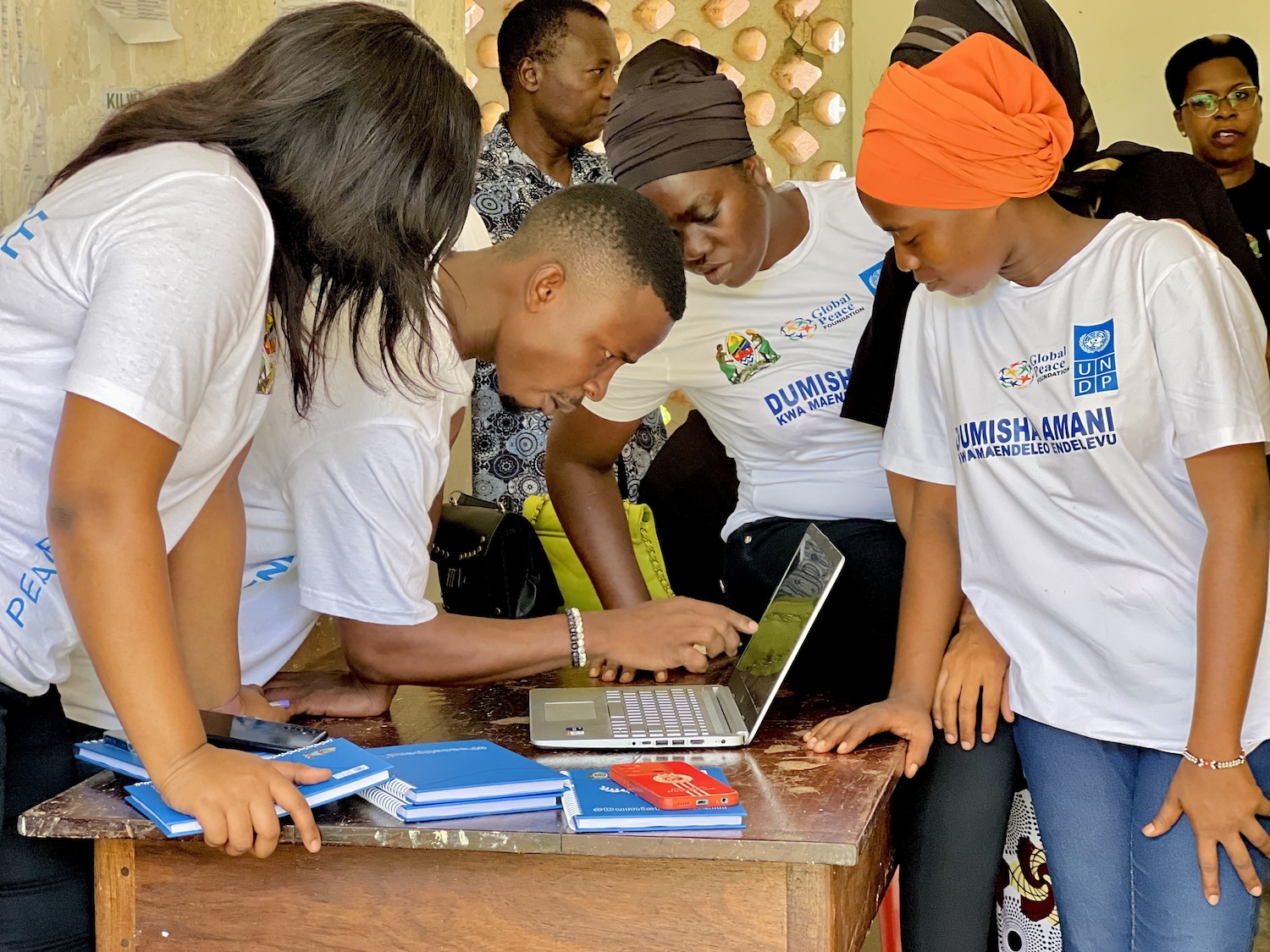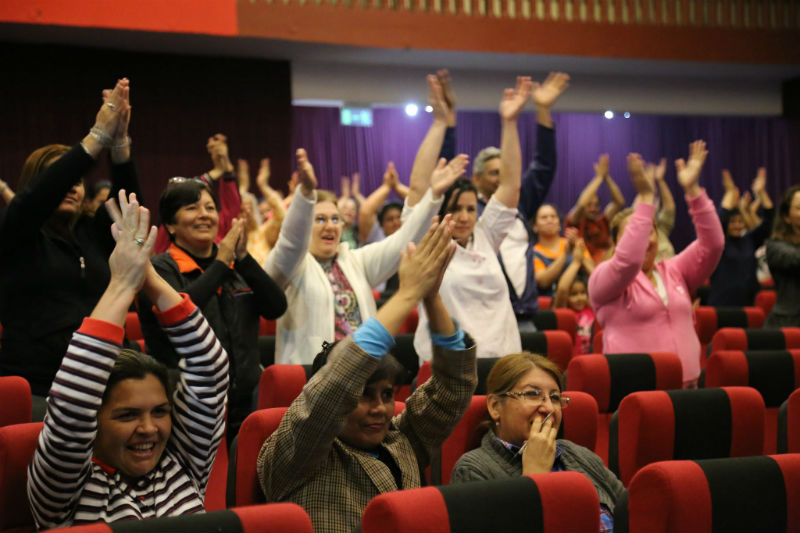Representatives from Kenya, Ethiopia, Nigeria, Cameroon and Sierra Leone met at the Global Peace Foundation (GPF) Headquarters offices in Lanham, Maryland on August 2 to explore contributions of the African diaspora in the United States to a renewal of America’s founding values.

African expatriates at the GPF roundtable, clockwise from top left: Eskinder Negash, Abi Jinadu-Mustapha, Father Canice Enyiaka, Essey Workie, Ajong Mbapndah, and Barber Karoma.
American life has been enriched by waves of immigration throughout its history, said Global Peace Foundation USA President Alan Inman. Acknowledging growing tensions and conflicts in American society, Inman said the roots of conflict, such as racial discrimination and xenophobia, is learned behavior. “We can ‘unlearn,’” he said, and urged the diaspora community to contribute as “modern Pilgrims,” upholding the family as the basic social unit and affirming faith and shared values as the basis of social cohesion.
Global Peace Foundation International President James Flynn explained how GPF’s peacebuilding efforts contrasted with “peacekeeping” or “peacemaking” work. Peacekeeping, he said, was typically intervention in conflict, separating hostile factions, or policing a conflict zone. Peacemaking was a negotiation of grievances to reach a settlement. Peacebuilding, in contrast, is often proactive work to build trust and connections among communities. “Many see it as a spiritual process,” Flynn said, strengthening a desire to forgive, be reconciled, and sacrifice for the welfare of others.”

Top left: Rutgers University professor of sociology Dr. Chinyere Osuji; top right: moderator Diann Dawson, former official at the U.S. Administration for Children and Families; below: GPF International President says shared values are the “glue” of communities.
Noting GPF’s ongoing One Family under God Campaign in Nigeria and the launch of a Cross Community Engagement pilot program in Jersey City, New Jersey, Flynn said insular communities can be living side by side, with little trust and understanding of one’s neighbors. “Without trust, a little spark can start a fire. Shared values are the ‘glue’ that can unite neighborhoods and societies, but recognizing and upholding those values is an intentional process of crossing a divide, of reaching out and finding common ground.”
Eskinder Negash, Senior Vice President for Global Engagement for the U.S. Committee on Refugees an Immigrants, observed that media reports of conflict and social upheaval very often define the accepted narrative. Europe’s immigration crisis, for example, is presented as a challenge to Europe’s cultural identity. Yet it is no less a humanitarian crisis, he said, where hundreds of thousands have been uprooted from their homes and are seeking safe refuge for their families.
Rutgers University professor of sociology Dr. Chinyere Osuji voiced some reservations about broadly affirming family and faith as expressions of inclusion and human solidarity when they can often functionally exclude those outside of the defined group.
Nigerian Catholic Father Canice Enyiaka, a priest at St. Matthias parish in Maryland, reflected on the significance of family and faith as a Catholic but also a person grounded traditional African beliefs. “Ebo cosmology recognizes the sacredness and interconnectedness of all life,” he said. “Family also represents connection, and our human family expresses our essential connection.”

Left: GPF USA President Alan Inman; center and right: participants share perspectives on African expatriate experiences and contributions to American life.
Participants also discussed a perceived separation and misunderstanding between diaspora Africans and African Americans. Among the proposals to advance the objectives of building social cohesion and renewing American values, participants proposed expanded gatherings of African immigrants with African Americans to recover shared history and experience, and to support efforts to build strong families in the milieu of contemporary American life.
This was the second convening of African diaspora representatives. Participants from15 African nations met in Arlington, Virginia, in October 2015.



